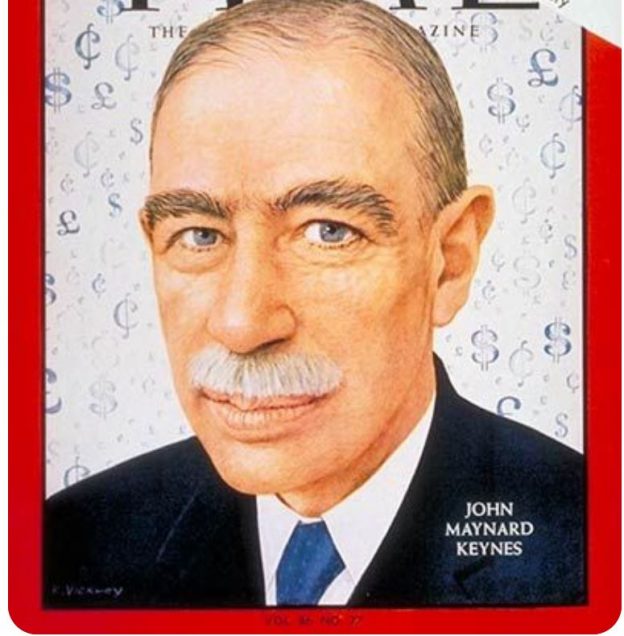Before his first address to a joint session of Congress, Barack Obama was advised, mainly by Republicans, to “be positive, if prudent” (Bill O’Reilly); “restore economic confidence” (National Review); “talk up” the economy (every Tom, Dick and Harry).
When befuddled Republicans kibitz about “a crisis in consumer confidence,” they’re referring inadvertently to what famed, Fabian economist John Maynard Keynes called “animal spirits.” I kid you not. Keynes honestly believed that the fickle consumer’s biorhythms control the spooky economy. If the consumer is spooked, “the economy” gets that way too.
The Voodoo Child obliged the demands for a pep-talk.
“While our economy may be weakened and our confidence shaken; though we are living through difficult and uncertain times, tonight I want every American to know this: We will rebuild, we will recover, and the United States of America will emerge stronger than before,” the president thundered. He then went on to talk big— big government, that is.
Sure enough, the Dow Jones Industrial Average and the blue-chip benchmark declined. Ditto the S&P 500 and the Nasdaq Composite Index. Only a day earlier, bank stocks had “snapped back” briefly, as another witchdoctor, Federal Reserve Chairman Ben Bernanke, talked down the likelihood of nationalization, and promised imminent economic recovery. But then the stocks slid again.
Talk from mount Olympus, it would seem, can’t move mountains (of debt).
The idea that optimistic platitudes can “restore the confidence” of cash-strapped consumers, and compel them to resume their addle-brained consumption, belongs to Keynes and his acolytes. Once you understand that our overlords all follow Lord Keynes, it becomes easier to comprehend their credit and consumption-based voodoo economics. “If we do not re-start lending in this country, our recovery will be choked off before it even begins,” threatened Obama.
The Economist’s A-Z of Economics quotes Keynes’ convoluted explanation of the concept of “animal spirits.” I won’t; like his theorizing, Keynes’ writing is incoherent. (See for yourself.) So too is “Economics A-Z” perplexed by Keynes’ whimsy: “Where these animal spirits come from is something of a mystery. Certainly, attempts by politicians and others to talk up confidence by making optimistic noises about economic prospects have rarely done much good.”
When “confidence” fails, coercion follows.
“We will act with the full force of the federal government to ensure that the major banks that Americans depend on have enough confidence and enough money to lend even in more difficult times,” barked Barack. “This administration is moving swiftly and aggressively to break this destructive cycle, restore confidence, and re-start lending.”
Because consumption is its be-all and end-all, consumer confidence is crucial to the Cult of Keynes. If the consumer is not crazy confident─even when he ought not to be─goes the “thinking,” he’ll quit consuming until he drops. In short, our economic animists are hoping that the holy spirit of “confidence” will enter the once bitten, twice shy lender, and make him lend. The same spell is supposed to mysteriously move the unemployed and penniless to spend. I sincerely hope not.
In his wonderfully learned book, The Failure of the ‘New Economics, Henry Hazlitt (a favorite of mine, as you might have guessed) summed-up the essence of Keynes’ General Theory: “The great virtue is Consumption, extravagance, improvidence. The great vice is Saving, thrift, ‘financial prudence.'” Duly, Obama has vowed to make credit flow “the way it should.” Never mind that “all credit is debt,” and that, in Hazlitt’s words, “proposals for an increased volume of credit are merely another name for proposals for an increased burden of debt.”
Another wise American, Zygmund Dobbs, author of “Keynes At Harvard: Economic Deception As A Political Credo,” provided the history and the “why.”
First the history:
“In his attack upon the principle of savings, Keynes merely echoed an old revolutionary stratagem of Fabian Socialists. At the Labour Party Conference in 1923, the Fabians ‘rejected the concept that private savings increase community national assets.’ Even earlier (1916) the Fabians declared ‘large savings by a wealthy class an inherent evil; they increase and perpetuate a functionless, tribute-levying class of rentiers, which is already a dangerous element in the State.'”
Next the “why”:
“The concept of eliminating savings is not an economic one but a political one. If there are no savings there is no private money for investment. Without private investors the government must provide investment capital. If the government provides for investment it has the power to dictate the conduct and processes of those who need investment capital.”
“The trick is to get control of the government and then the road to socialism is automatically assured.”
The Voodoo Child is true to the mores and methodology of Keynes.
©2009 By ILANA MERCER
WorldNetDaily.com
February
CATEGORIES: Barack Obama, Debt, Economy, Political Economy, Socialism

 print
print